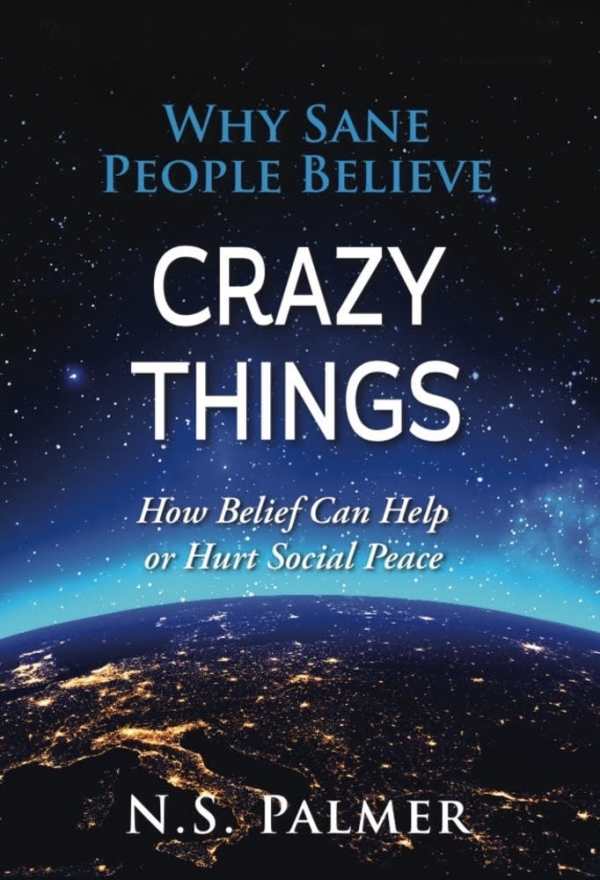
Why Sane People Believe Crazy Things
How Belief Can Help or Hurt Social Peace
Convincing and timely, this book examines beliefs in terms of their ability to lead to happy, moral lives.
N. S. Palmer’s intriguing and vital Why Sane People Believe Crazy Things is a multidisciplinary study of belief, theories of truth, and tolerance.
“Too often, beliefs divide us from our fellow human beings. They provide an excuse for hatred, persecution, and bloodshed,” writes Palmer. “But it doesn’t have to be that way. We can do better.” This book shows how beliefs, rather than being strictly mental, actually have psychological, moral, social, and spiritual functions. Such foundations are sometimes so strong that the beliefs they uphold influence behavior, whether or not they are supported by logical evidence.
Tackling the question of whether or not it makes any difference what a person believes, Palmer affirms that it makes a lot of difference, and gives ways to recognize whether or not a belief is “true” and practical. He argues against a basic premise of postmodernism: that because different belief systems support different truths, there is no such thing as objective truth at all.
The book supplies historical and contemporary facts as well as compelling stories and colorful charts to illustrate and support its arguments, which begin with easy-to-understand constructs that grow in depth and complexity. The writing style ranges from conversational and touched with a bit of wry humor to somewhat pedantic in its effort to make complex concepts accessible.
Explaining the difference between absolute truth—which can be determined only by having infinite knowledge—and objective truth beyond beliefs, the book shows that it’s possible even for those who hold vastly different beliefs to engage in convivial, rational, and reasonable discussions, though this is difficult and requires tolerance.
The book is comprehensive in its inclusion of topics most relevant to understanding how beliefs are formed, why they persevere in the face of evidence to the contrary, and their potential effects on individuals and society. However, the effort to keep the discussion brief and to the point makes for somewhat heavy reading; much is condensed in this brief text. Examples of “crazy” beliefs and how these played out in human history might have a welcome lightening effect.
The book is well-reasoned and thoughtful in its coverage of subjects including the way the brain works to make meaning and how and why humans make the leap from from “an unknowable, transcendent reality” to religion. It comes to the convincing, timely, and valuable conclusion that if a person’s beliefs lead to living a happy, moral, and productive life, then those beliefs are justified.
Drawing on philosophy, theology, and psychology, Why Sane People Believe Crazy Things is not only interesting but vital to living and acting in the world as a whole, conscious, and aware being.
Reviewed by
Kristine Morris
Disclosure: This article is not an endorsement, but a review. The publisher of this book provided free copies of the book and paid a small fee to have their book reviewed by a professional reviewer. Foreword Reviews and Clarion Reviews make no guarantee that the publisher will receive a positive review. Foreword Magazine, Inc. is disclosing this in accordance with the Federal Trade Commission’s 16 CFR, Part 255.
